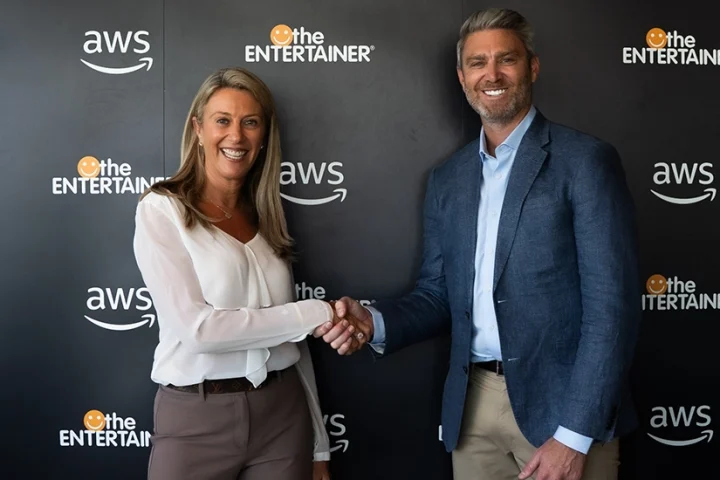Organisations are looking at global trends and early indicators of the nature and scale of recovery, and what form this could take. It is a reality that the nature of travel will change, with simplified passenger experiences, fewer flight options, less choice for customers and increased costs, with less available income. This level of change will mean that organisations will need to look differently at customers and their organisational structure. However, technology will have a critical part to play in transforming the end-to-end customer experience, with new enforced business processes and enhanced data to drive customer confidence. These are five trends to consider in the new normal in travel and hospitality:
Contactless: Touchless or voice
Re-envisaging the end-to-end customer experience with increased biometric controls may become the norm. Use of voice and video to drive a contactless experience along with contact tracing may become more prominent. Voice will be used more extensively for information exchange and controls, with image recognition being adopted more widely to automate registration, check-in and moving through security areas.
The active use of this technology is important as organisations establish new working practices and interactions with customers by identifying every touch point of the journey and looking at how security and access controls can be contactless and provide a rich interactive customer experience. For example, when checking in to a hotel, a customer would receive a notification alert of the deep cleaning of a room. They can confirm and check in on a mobile device, identifying luggage and arrival method, which then provides the virtual room key. Once activated, any access to the room is notified to the customer.
This is a very simple scenario, but identifying every touch point of the journey and looking at how security and access controls can be contactless to provide a rich interactive customer experience. This will be similar when considering the arrival at an airport, from parking through check-in, border controls through to boarding. How will airlines and airports collaborate to provide a rich, integrated contactless experience? Elenium, built on AWS, has developed contactless check in and health screening kiosks at airports leveraging several AWS services including Amazon Rekognition. We expect to see measures such as this gain interest across travel, hospitality and beyond.
Remote flexible working
Working remotely and flexibly for extended periods is, in some cases, demonstrating increased productivity and improved work-life balance. Swapping the daily commute for home working will be accelerated, with other areas of growth such as fitness activities and integrated online or offline experiences. It is expected that where possible, all roles will support some form of flexible working, from a few days a week to full time.
This will see the need for more flexible, integrated communication solutions for voice and video with increased use of remote workstations. Managing federated teams requires different techniques to ensure inclusion, motivation, managing isolation and a balanced work schedule to prevent burn out. This requires different collaboration and management best practices. Having capable secure, scalable solutions that need minimal bandwidth and simple low maintenance hardware will be key in providing low-cost secure home working environments.
Social distancing
As organisations focus on recovery, balancing customer and employee confidence, regulatory controls and government tracking and management of future outbreaks will have to be navigated. There will be a demand to implement capable social distancing and safe working practices. This will put an emphasis on not only implementing new best practices but also demonstrating the actual adherence and management of non-compliance. All of these processes will drive requirements to store even more large quantities of data, such as video and compliance reports. Securely ingesting, storing, analysing and visualising this data at scale will require aggregation of disparate data sources in data lakes with mechanisms for securely exchanging information.
More delivery and pickup
During recent times, new business models have evolved rapidly, with organisations creating new takeaway, pickup and delivery models overnight. Having flexible, scalable, low-cost solutions enable these business models to grow quickly and service demand. Organisations will need to spin up and run secure, scalable services and mobile applications. Interest in delivery is likely to spill over into the hotel space as customers become more accustomed to online ordering and comfortable with the safety of these services.
The new normal may accelerate the shift from room service to each individual guest getting food delivered. Hotels may need to start planning for their lobbies to be filled with 5-10 delivery companies at a time dropping off food. How does the front desk handle the security and process of coordinating the delivery of all these orders? For larger hotels, managing this via their operational systems may become a job in itself, as they may rely on data-driven business analytics insights to determine if they should be offering food options themselves and if so when and what kind.
Predicting and driving demand
A key area of focus will be really leveraging insights from disparate data sources. Many organisations have excellent historical data and patterns and behaviours of customers. Although still useful data sources, organisations will have to look at more advanced analytical solutions to understand future changes in customer behaviour. Analytical skills will need to be more sophisticated and dynamic to determine new trends and behaviours. This is where solutions using machine learning techniques such as reinforcement learning to build more sophisticated complex models to learn against market factors and to react in real time will be future differentiators.
By Paul Armstrong, Principal Solutions Architect, AWS.




















